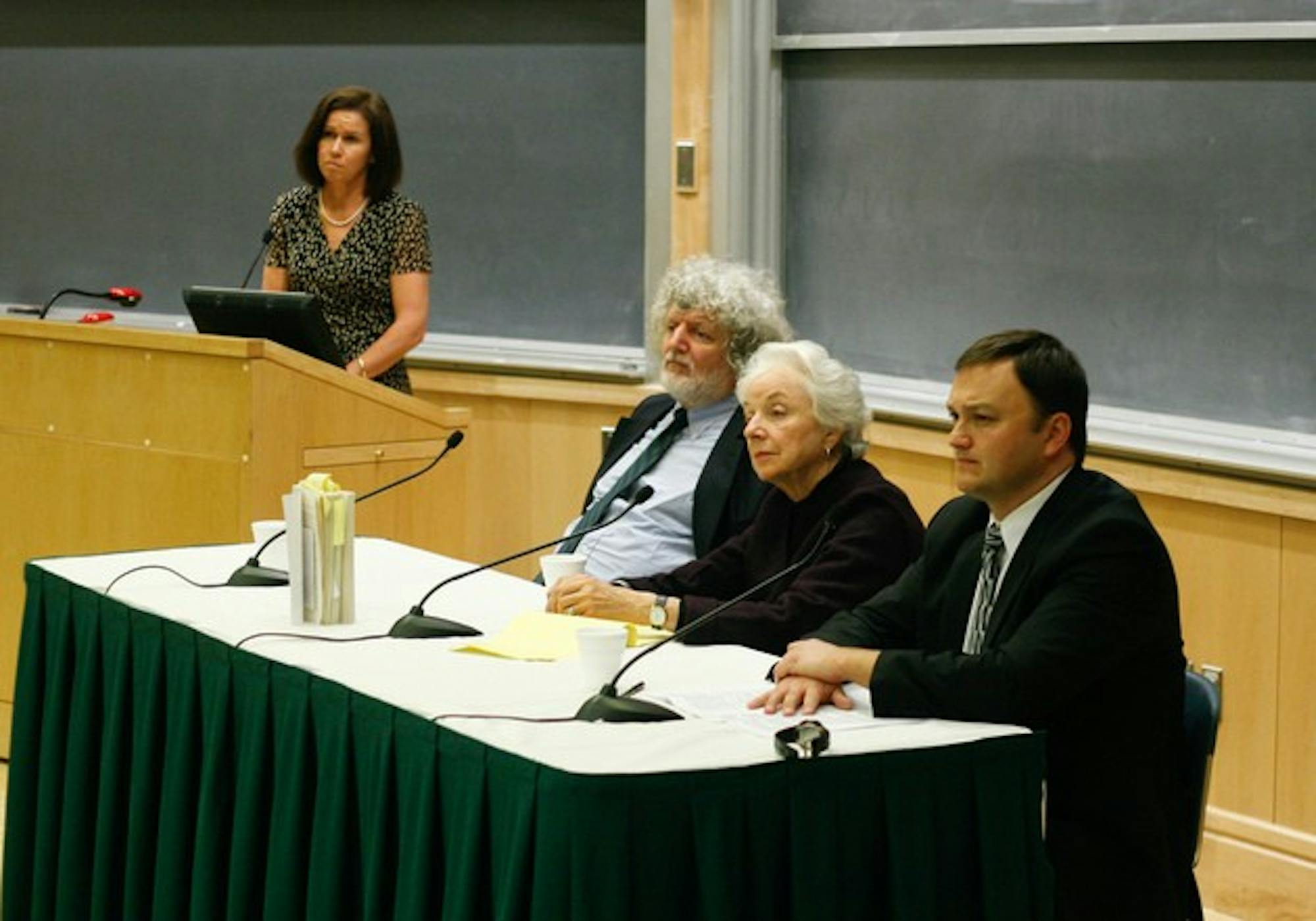The panel featured Montgomery Fellow John Burns, London bureau chief for The New York Times, Madeline Kunin, former Democratic Governor of Vermont and former ambassador to Switzerland, and government professor Dean Lacy.
In their initial statements, Kunin and Lacy both discussed the current political situation, and commented on how it reflects the ethics of American politics.
"How do we define character? My most simple definition of that is authenticity -- if you can come off as really believing what you espouse," Kunin said.
Lack of authenticity, Kunin noted, can be seen in the amount of money spent on the wardrobe of Alaska Governor Sarah Palin, the Republican vice-presidential candidate -- she bought clothes from Saks Fifth Avenue after "she portrayed herself as a hockey Walmart mom," Kunin said.
"It's not just the fact of the clothes, it's the image she portrayed and then the clothes," Kunin addeed.
How a candidate carries himself can also exemplify how authentic he is, she said. During the last debate, Republican presidential candidate Senator John McCain looked like he was "wearing itchy long underwear," while Democratic presidential candidate Senator Barack Obama was "comfortable in his own skin," Kunin said.
"Authenticity is a bit harder for women," Kunin said, because "you have to be tough enough for the job, but soft enough and likable enough."
Palin has been able to exemplify both qualities, Kunin said, but people still doubt Palin's ability to handle the vice presidency.
"[Palin] meets the feminist test. She has five kids, she's attractive, she smiles, she winks a bit," Kunin said. "She's the first woman who has had the confidence to bring her children on stage. She has changed the equation."
Lacy said the political process influences the morality of the country's chosen presidents.
"The men and women who run for office may not be the most moral among us," he said. "It may take some amount of hubris and pride to seek the office in the first place."
Long campaigns and the difficulty of actually being president create an almost impossible set of characteristics that presidential candidates are expected to have, Lacy said. This has led to a recent trend of candidates admitting one's failings instead of trying to cover them up, he added.
"While Bill Clinton said that he smoked marijuana but didn't inhale, Obama said he did inhale and that was the point," Lacy said.
Burns, who is from England, said he thinks America is still "driven more by a sense of right and wrong" in both easy and trying times, and added that this integrity is often overlooked by U.S. citizens.
"This country is still the great hope of mankind," Burns said.
Although there are frequent protests against America, most American embassies abroad are flooded by people "trying to fight their way" into the country, Burns said.
Following individual statements, the discussion focused on campaign practices.
"The only way we can curb [unethical campaigning] is by public outrage," Kunin said, adding that this could provoke freedom-of-speech issues.
A shorter campaign period was suggested as a way to remedy campaign finance problems and voter fatigue.
Obama's unprecedented fund-raising efforts will require a revision of campaign finance, Lacy said.
The recent financial crisis and the current political situation provoked questions on whether the next president will be able to do what he has promised.
"The next president has been dealt the worst hand of any president since the 1930's," Lacey said. "But another way to go at it is that there's no other way to go but up."
Due to his position at The Times, Burns asked not be quoted on his contribution to the open discussion.
The panel was sponsored by the Ethics Institute in conjunction with this year's Dorsett Fellow presidential historian Michael Beschloss' Thursday afternoon speech on presidential leadership.




